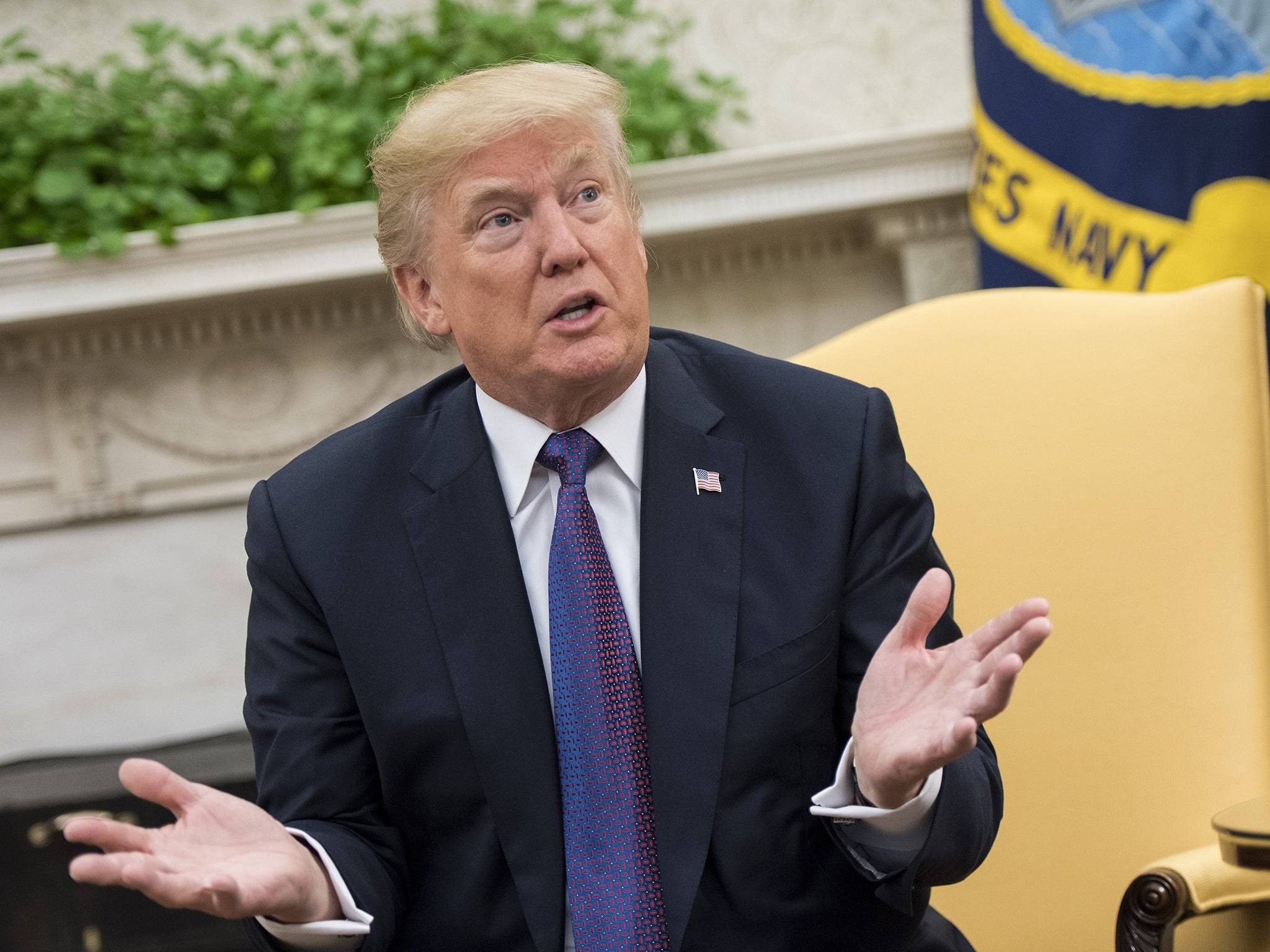Why Obama and Bush's synchronised attacks on Donald Trump matter
‘Instead of our politics reflecting our values, we have politics infecting our communities’
Your support helps us to tell the story
From reproductive rights to climate change to Big Tech, The Independent is on the ground when the story is developing. Whether it's investigating the financials of Elon Musk's pro-Trump PAC or producing our latest documentary, 'The A Word', which shines a light on the American women fighting for reproductive rights, we know how important it is to parse out the facts from the messaging.
At such a critical moment in US history, we need reporters on the ground. Your donation allows us to keep sending journalists to speak to both sides of the story.
The Independent is trusted by Americans across the entire political spectrum. And unlike many other quality news outlets, we choose not to lock Americans out of our reporting and analysis with paywalls. We believe quality journalism should be available to everyone, paid for by those who can afford it.
Your support makes all the difference.Donald Trump was not mentioned by name. But it was utterly obvious whom his predecessors in the White House were referring to, and the impact they believed his actions were having on the country they had once governed.
“Our politics seems more vulnerable to conspiracy theories and outright fabrications,” said George W Bush, who occupied the White House from 2001 to 2009.
Barack Obama, who held office from 2009 to just nine months ago, said politics appeared “so angry and nasty”. “Instead of our politics reflecting our values, we have politics infecting our communities,” he declared.

For the last six decades, it has become a generally accepted tradition that former presidents do not criticise the behaviour of those who follow them. The fact that two former presidents – moreover individuals representing different parties and separated by 15 years in age – should do so with such vehemence and on the same day, is unprecedented.
The triggers were the strident actions of the man whose name was unspoken.
“Traditionally, during periods we are most polarised, the former presidents try to bring the country together,” said Barbara Perry, director of presidential studies at the University of Virginia’s Miller Centre.
“Then you have Donald Trump who is utterly unprecedented in that he has no military or political experience and who does not recognise the political norms. That is why he was elected.”
The tradition of former presidents not speaking out against those who followed them, has not always existed. In the early days of the Republic, John Adams, the nation’s second president, clashed with Thomas Jefferson, who served as his vice president even though he was was different party, and who became the third president.
Harry Truman, a Democrat who served as the 33rd president, spoke out passionately about the actions of Republican Dwight Eisenhower, the former five-star general who was the nation’s 34th commander-in-chief, said Ms Perry.
Even among the five surviving former presidents, individuals did not always hold their tongue. In 2004, Jimmy Carter, the 39th president, who was awarded the Nobel Peace Prize in 2002, criticised George W Bush and Tony Blair for waging an “unnecessary war” to oust Saddam Hussein based on “lies or misinterpretations”.
“There was no reason for us to become involved in Iraq,” he told The Independent. “I think that President Bush and Prime Minister Blair probably knew that many of the allegations were based on uncertain intelligence .... a decision was made to go to war [then people said] ‘Let’s find a reason to do so’.”
Such interventions are rare. Yet as Mr Trump’s presidency progresses and he continues to trample on many conventions of American political life and presidential behaviour, they may become more common.
Last month, Mr Obama criticised the President for deciding to scrap the Deferred Action for Childhood Arrivals programme he had passed to provide protection from deportation for children and young people who had entered the country without documents. He said the move was “cruel” and “self-defeating”.
Ms Perry said she suspected Mr Obama and Mr Bush may have been inspired to speak out this week, one in Virginia, the other in New York, after Mr Trump claimed he was rare among presidents in speaking or writing to relatives of members of the military killed in action. Former aides to both presidents said both of them had done so, as had presidents such as Bill Clinton and others before him.
The former presidents “are stepping up, especially about the war dead,” said Ms Perry. “I think it is pointing towards a new normal.”
Robert Shapiro, Professor of Government at Columbia University said both Mr Obama and Mr Bush had little affection for the President for reasons of personal enmity.
“But I think both think Donald Trump is an affront to the American presidency and American institutions,” he said.
As it is, the five former presidents – Mr Carter, George HW Bush, Mr Clinton, Mr Bush and Mr Obama – will this weekend all be attending a fundraising event for hurricane relief being held at the Texas A&M’s Reed Arena in College Station, 100 miles north west of Houston.
The concert has been organised by the George HW Bush Presidential Library Foundation and will feature Lee Greenwood, The Gatlin Brothers, Lyle Lovett and Cassadee Pope.
Among those who will not attending are Donald Trump.

Join our commenting forum
Join thought-provoking conversations, follow other Independent readers and see their replies
Comments